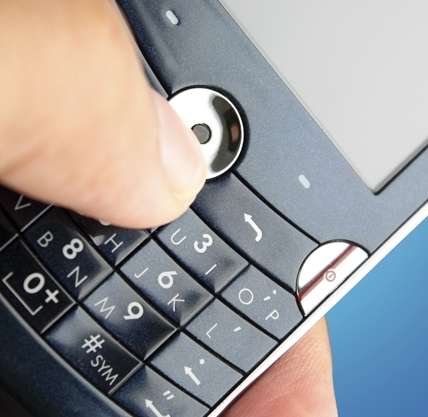
A new military telehealth application —mCare — is poised to help wounded active duty, Reserve, and Guard get the daily help they need to recover.
Presidents, kings, and dignitaries have a personal doctor who travels with them, who is on call — solely for them — 24/7. Most people do not have such a luxury, but the United States Army Medical Research and Material Command and its subordinate the Telemedicine and Advanced Technology Research Center are developing a new mobile phone application to offer wounded Army active duty, Reserve, and National Guard daily help to recover. The app is called mCare — a secure, bi-directional mobile messaging system for wounded warriors. In a nutshell, the mCare platform is a way to help wounded warriors keep in touch with their case manager and medical team through secured messaging using their personal mobile phones.
Although still in its pilot stage, the mCare platform, when launched, will be accessible throughout the United States Army and will include wounded warriors assigned to Warrior in Transition Units who want to download the mCare application to their mobile phones or smartphone.
What exactly does the mCare app do?
Currently, in its pilot stage, mCare sends daily messages to Army Reservists and National Guard members recuperating at home. The messages are sent directly to the wounded warriors’ mobile phones from a secure central website where healthcare providers can enter and control the messages as well as monitor acknowledgement and delivery confirmations.
The system is set up while the soldiers are at their Community Based Warrior Transition Unit (CBWTU) for a week before returning to their homes. During that week, they meet with their medical team — doctor, social worker, nurse, and case manager — for evaluations, diagnoses, and then the creation of an individually tailored regimen of care. Once they return home, their care is tracked through the mCare app, a secure, HIPPA-compliant system.
Each soldier is given a pin number and cannot access the program on his phone until he logs in. If he loses his phone, the healthcare providers can uninstall the program remotely.
Among others, mCare app messages include:
- Appointment reminders – Once Case managers enters an appointment into the system an appointment reminder is sent 24 hours prior and 90 minutes prior to the soldier the day before with a prompt to answer if he plans to attend and if not, why. These messages are not simply one-way reminders, but a back and forth communication.
- Unit announcements – These messages can include reminders to fill out weekly timesheets and paperwork required by their Platoon Sergeant as well as announcements about job fairs, beneficiary information, or support groups in that soldier’s local area.
- Questionnaires – These can include short checklists to monitor a soldier’s mood, general welfare, family situation, etc. If a soldier answers negatively, their care team members will be alerted to get in touch directly.
- Goals – While soldiers are at their CBWTU, they set up goals with their treatment team. These goals are tracked with various messages from the case manager.
- Health and wellness tips – These expert-vetted tips can range from simple reminders about getting regular, restorative sleep to information about substance abuse after TBI and PTSD.
- Inspirational quotes – These quotations and thoughts are sent to soldiers to help them feel connected to others and to take healthy steps to move forward.
As of June 2011, more than 96,681 messages were sent through mCare. The pilot studies have also shown that appointment attendance increased significantly with use of the mCare app and more than one-third of the soldiers read the health and wellness tips. Regarding soldiers who reported that using the mCare app improved their CBWTU experience and improved communication with their unit, 72 percent scored it six or above on a scale of one to 10.
Not just for Millenials and Gen X
The mCare app was developed to be used on soldiers’ own mobile phones — the feature phone or smart phones they already used and felt comfortable with. It was designed to be easy to install, remove, and use while at the same time providing value and incentive so that soldiers want to use it regularly. The mCare interface requires one or few clicks to respond and communicate rather than relying on people to have seasoned texting skills.
Surprisingly, the pilot study results show that soldiers of all ages are using the app, not just those in the younger age brackets of 18-35 (Millenials) and 35-46 (Gen X). And consistency of use continues to increase in all user groups.
“Dashboard” for providers
Initially, healthcare providers involved in the pilot studies were concerned that this back and forth of messages would be overwhelming, time-wise. As it turns out, more than 85 percent of care providers say that they would recommend the app to other providers because it helps them monitor their patients’ progress.
By monitoring the soldiers’ progress through the various messages, the web interface creates a sort of ongoing snapshot. If, for example, a case manager notices that a soldier is failing to show up at regular rehab appointments or is getting increasingly depressed, he can send that soldier’s doctors and Platoon Sergeant a “red alert” for more direct intervention.
Soldiers are also required to check in daily with their Platoon Sergeant and weekly with their case manager. The main goal of this telehealth application is to make sure no one falls through the cracks and that care is constant and consistent.
Going forward
If the studies and surveys for mCare continue on the upswing, the creators of the mCare app hope to make the system available to all arms of the military — active duty, Reserve, National Guard, and veterans. And it makes sense to envision the system as the ultimate bridge for service members transitioning out of service to the Veterans Administration.
